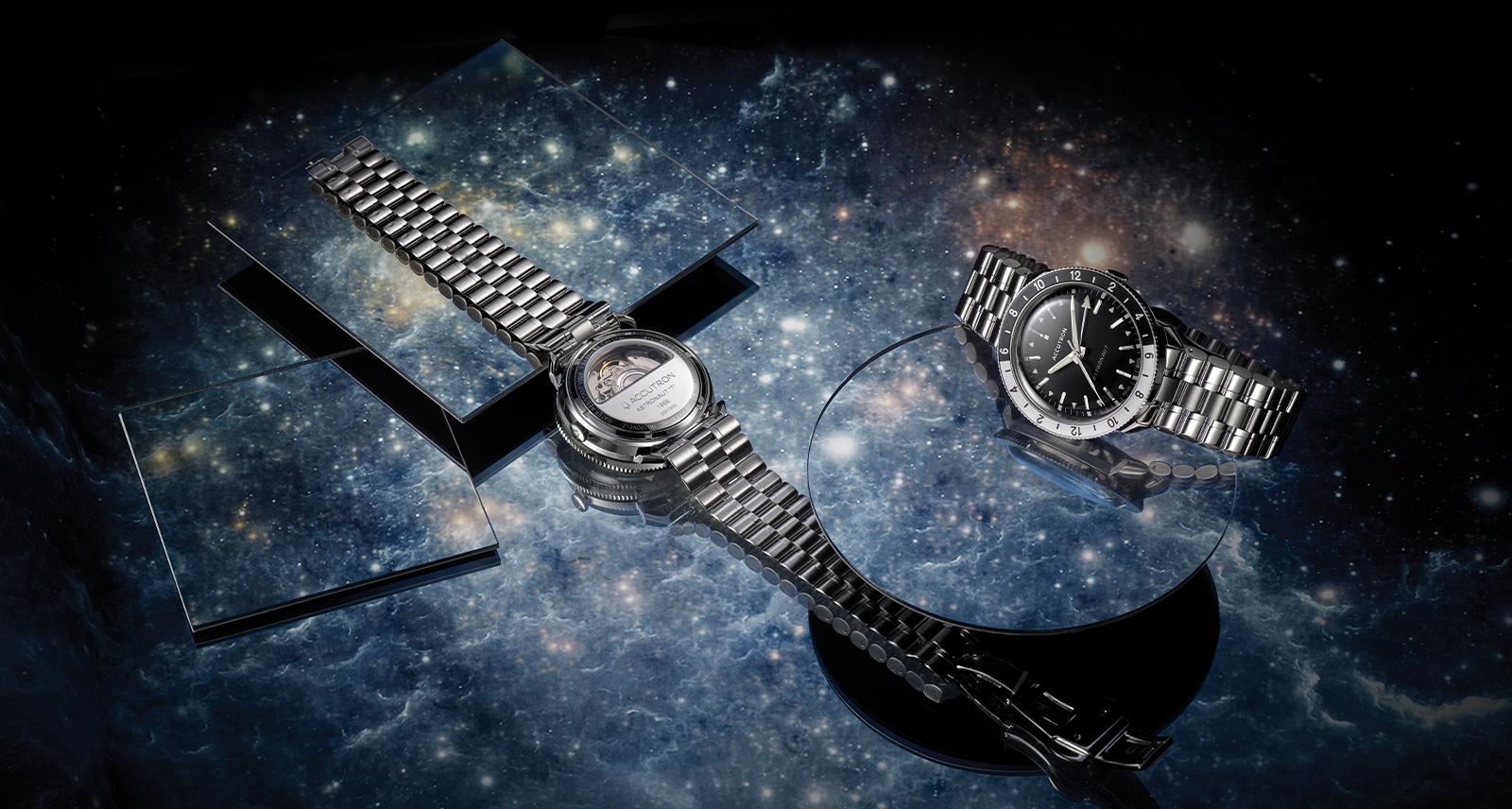Daveed Diggs Has Arrived
LIKE ANYONE MEETING for the first time over the last year, Daveed Diggs and I meet on Zoom. In an attempt to explain why I might appear poorly socialized, I immediately tell him he’s the first person I’ve talked to over the past couple of days. Luckily, Diggs is nice enough to laugh at my awkward confession from his room in Vancouver where he’s shooting Netflix’s Snowpiercer; he just ended his mandatory two-week quarantine — so we’re kind of in the same boat.
Diggs isn’t complaining — even if this is his second round of Canada’s mandatory two-week quarantine. “It’s amazing that, as an industry, we’re able to figure out ways to do this safely,” he says of the pandemic-related health protocols that have become what we now call the “new normal.” And for Diggs, it is not only the new normal, but the most familiar circumstances under which he worked on his forthcoming Starz television series, Blindspotting.
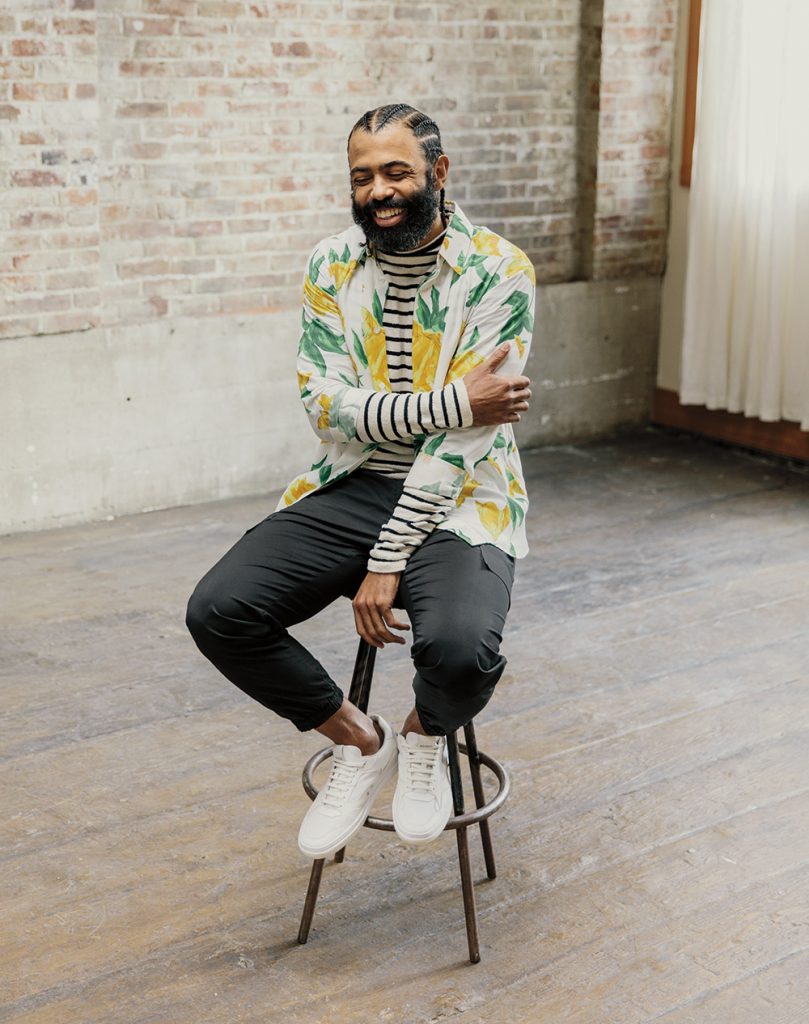
A spinoff of the highly acclaimed 2018 film of the same name — which he co-wrote, produced, and starred in alongside his long-time friend and creative partner Rafael Casal — Blindspotting went into production just before the pandemic hit. “We have 250 employees, and every day we’d go to work, I’d be terrified someone was going to get sick,” he says of shooting. “Acting on a COVID production is one thing,” he explains, “but producing your show, being someone who’s in charge of making things happen, is crazy. I have a ton more sympathy for my Snowpiercer producers.”
But being in charge of 250 people, on a show he co-created, with his long-time friend from his hometown of Oakland, is something Diggs can only really describe as being “crazy.” At 32, after spending much of his life making music and performing poetry, he got cast in Hamilton, and the trajectory of his career changed completely. “I feel very fortunate for Hamilton, but none of us could have expected that would happen,” Diggs says of the play’s success. “That’s not supposed to happen to a play!” Describing how he ended up in Hamilton is the stuff of any creative’s dreams: “It was a bunch of my friends who asked me to do something with them. And I was like, ‘Sure!’ And then it became this thing.”
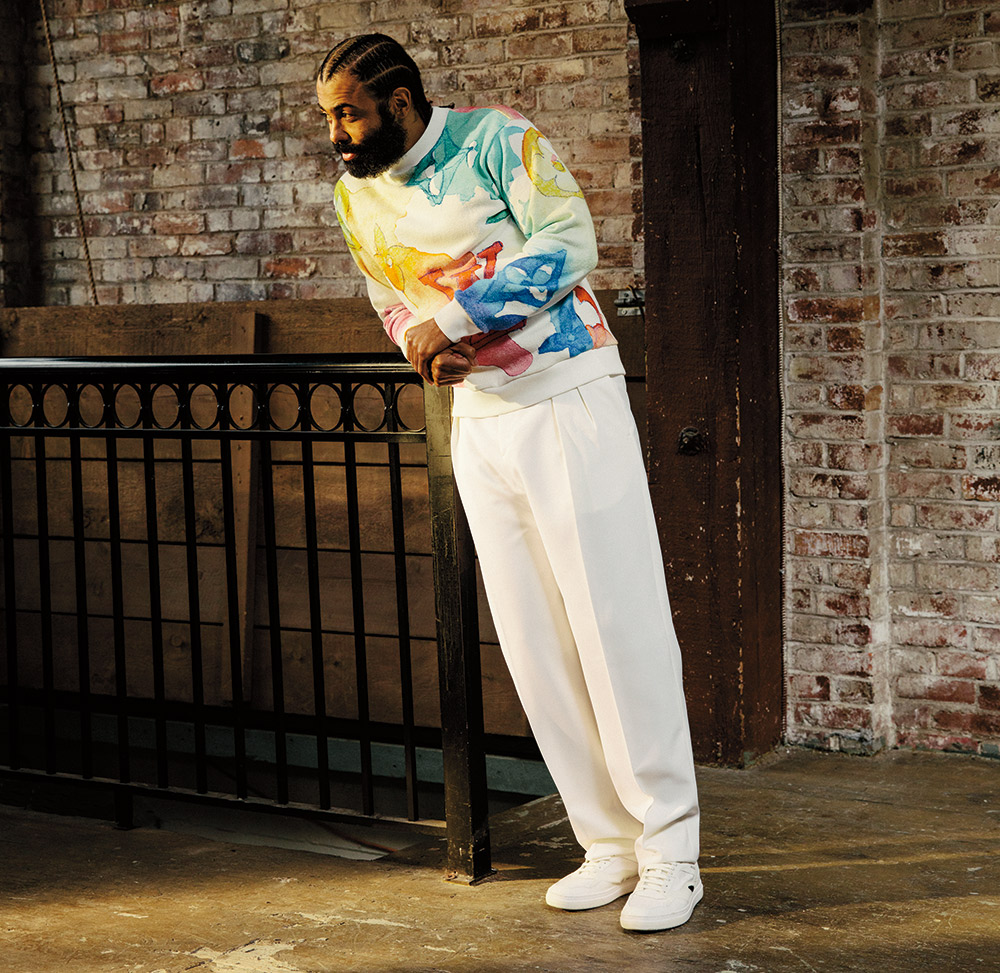
After the massive impact of Hamilton, one of the most successful shows in Broadway history, Diggs found himself in a unique position. Suddenly, doors were opening for him that hadn’t before. “This led me to understand there was nothing about my process that was wrong,” Diggs said of his unexpected catapult to stardom. His experience lay mostly in experimental theatre, underground rap, and poetry — becoming a Tony and Grammy winner wasn’t even on his radar. “When you spend so much time knocking on doors and having them not open, you can start to think that you have to change what you’re doing,” Diggs says. But if the success of Hamilton taught him anything, it’s that there’s so much value in working with people you love, which is why Diggs now sees himself in a position to not just go through those open doors, but bring along those he loves with him.
Speaking to Diggs, I get a sense of just how surreal it is to become a part of a cultural phenomenon well into adulthood and feel the pressure of having to figure out a next move. “I got out of my depth very quickly,” he explains of the immediate Hamilton aftermath. “I never had an agent or manager or anything like that before,” he says. “The thing about Hamilton is that nobody really knew what to do with that success. I was getting offers to write music and star and produce, and I had no idea what any of it meant.”
Immediately after his last Hamilton performance in 2016, he took a train to D.C. to do a poetry slam with Casal, then immediately flew to Vancouver to shoot 2017’s Wonder along- side Julia Roberts and Owen Wilson for four days. It was his first time on a film set, and he had no idea what he was doing. “All my co-stars were 12-year-olds and I was asking them how to do everything,” he says of the experience. “Jacob Tremblay would be like, ‘That’s where you stand,’” Diggs says, laughing.
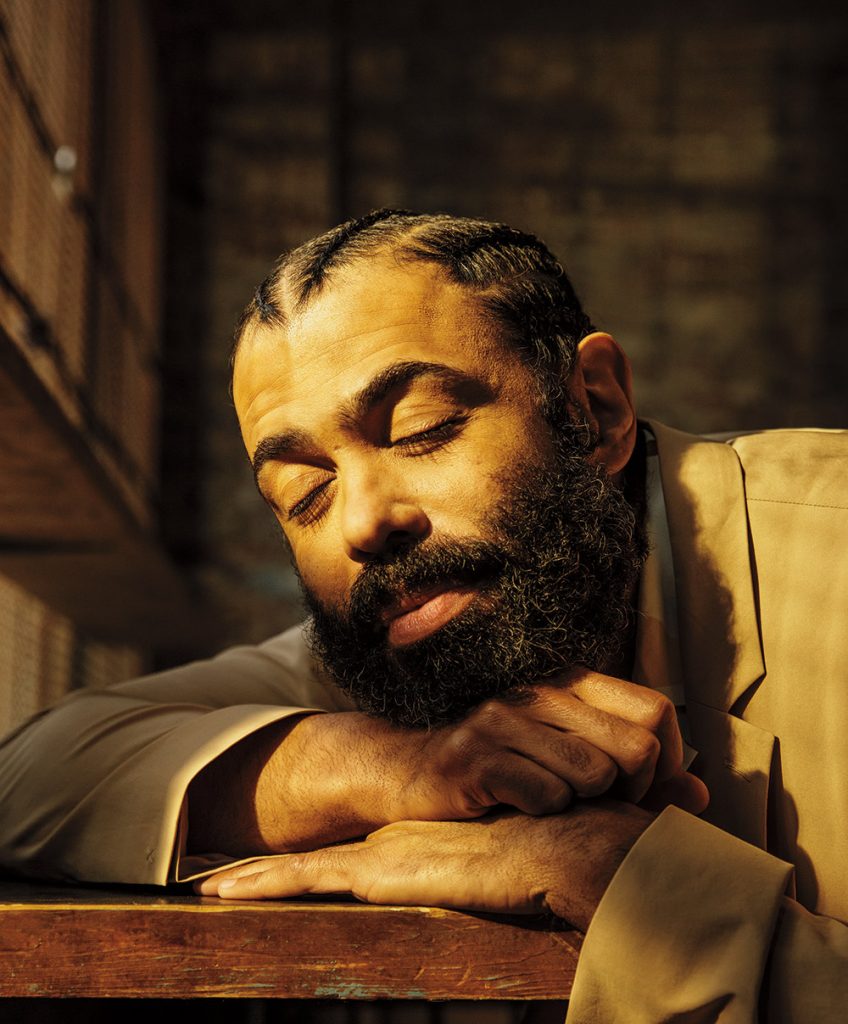
Despite his lack of on-set experience, Diggs found himself co-starring in Blindspotting, a film that took nine years to co-write with Casal and 22 days to shoot in 2017. The dramedy focuses on a parolee who witnesses a police shooting three days before his parole is up. Premiering at Sundance, Blindspotting was met with rave reviews, and Diggs and Casal imagined their journey would end there. “We were approached by Lionsgate and they said they loved Blindspotting and wanted to make it a TV show,” Diggs says. The pair’s immediate reaction was “Absolutely not.”
They met with Lionsgate anyway (who wouldn’t) and found themselves coming up with what a television show would look like. “We kept saying, I mean, we’d only do a TV show if it was to be about the Ashley character, and if it was set on this one block in Oakland, and if we got to explore new characters.” Before they knew it, they developed an outline for exactly how it would look. Most importantly, both Diggs and Casal saw the show as a way to not only represent Oakland, but also showcase and foster local talent — something that’s been important to Diggs since he rose to stardom. Growing up in Oakland, he never felt his city was adequately represented onscreen, that the Bay Area never got the same treatment as other big cities. “The scale of it is so much bigger than what we got to do with the film. We have the same creative team,” Diggs says of the creative process, “but we have this ability to commission more art and music and clothes and talent from the community we’re talking about.”
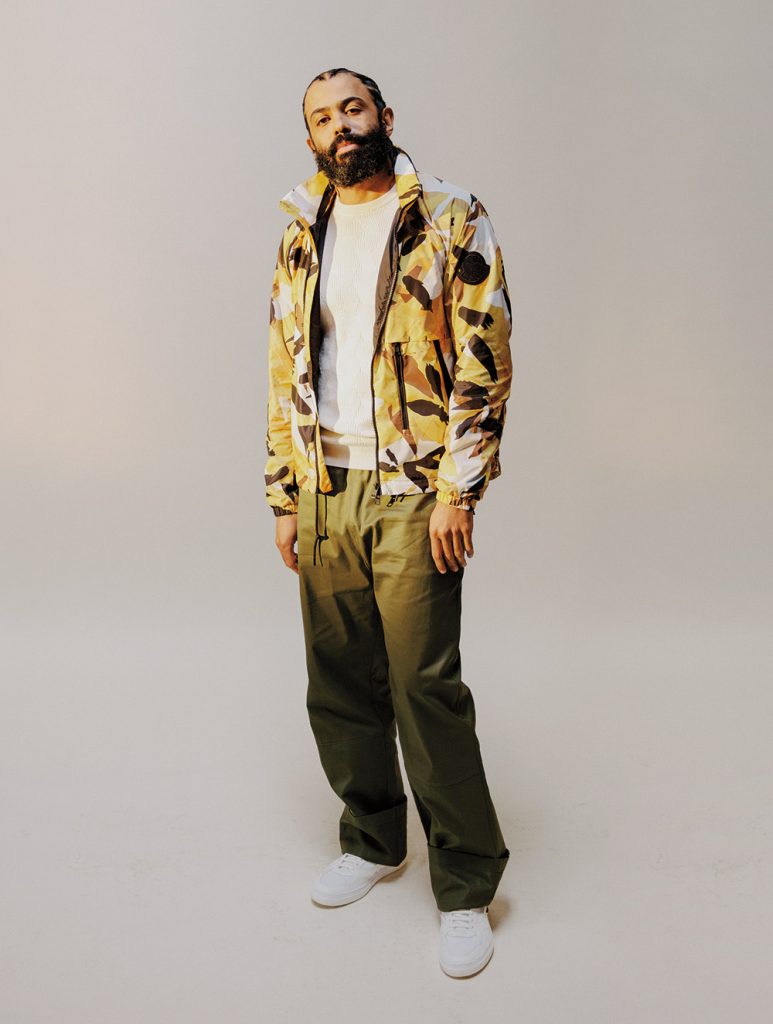
Though he was relatively new to the spotlight, Diggs seemed to know exactly what to do with his opportunities. Almost everyone from Hamilton was able to capitalize on its success. “It allowed me to go back to my community,” Diggs explains. “It was like, hey, someone just opened the door for us, so I’m gonna hold it open for as long as I can. And it can shut at any minute, so I’m like, ‘Everybody start running, security’s not looking!’” I tell Diggs not everyone has that mindset, especially when so much of the messaging to Black creators is that success is scarce. “The idea of success is a thing that’s so elusive to me,” he says thoughtfully. “I grew up in awe of a lot of artists in my community — like, the happenstance of me getting this moment; it could have been any of them,” he explains. “It would be so much worse if I didn’t get to do this with people I care about.”
As I’m speaking to Diggs about his success, it’s clear that much of it comes from genuine curiosity, of wanting to learn as much as he can. “The amount of shit I don’t know is staggering, and I love it!” he says. “I’d be pretty bored if I knew what I was doing. I’m still pretty lost.” I ask if he’s scared of making any mistakes. “There’s a lot to learn about this business,” he says, “and there are so many mistakes I have yet to make. I can’t wait to make them all.”
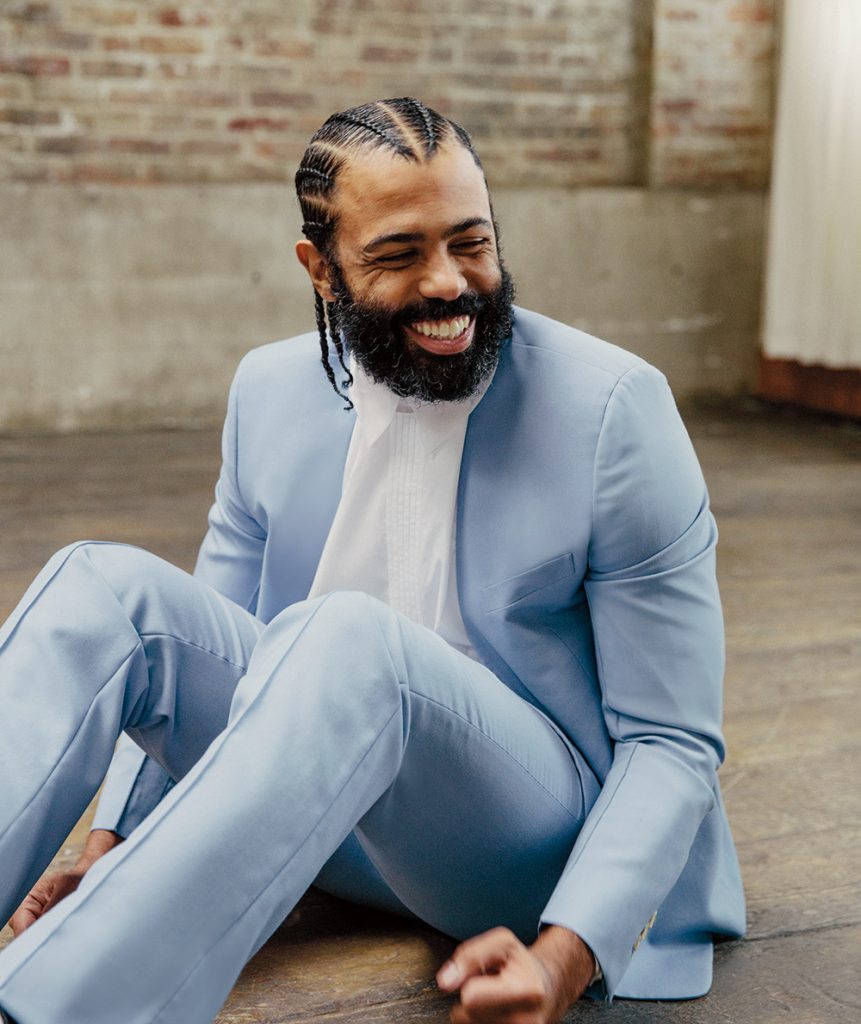
Lead image: Jacket, shirt, and pants (all price upon request) by Prada.
Styling: John Tan
Photography: Grant Harder (JK Reps)
On-Set Stylist: Sanchia Wong
Hair: Charleen Gabriel
Makeup: Jada Arriola (Richard’s)


